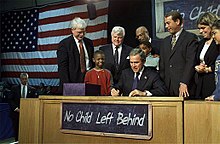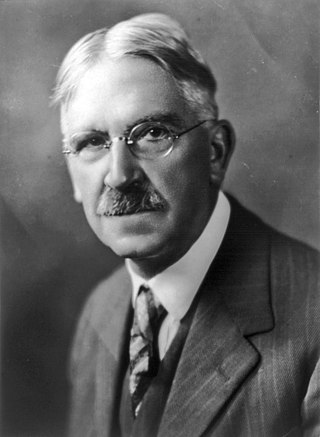
John Dewey was an American philosopher, psychologist, and educational reformer whose ideas have been influential in education and social reform. He was one of the most prominent American scholars in the first half of the twentieth century.
The philosophy of education is the branch of applied philosophy that investigates the nature of education as well as its aims and problems. It includes the examination of educational theories, the presuppositions present in them, and the arguments for and against them. It is an interdisciplinary field that draws inspiration from various disciplines both within and outside philosophy, like ethics, political philosophy, psychology, and sociology. These connections are also reflected in the significant and wide-ranging influence the philosophy of education has had on other disciplines. Many of its theories focus specifically on education in schools but it also encompasses other forms of education. Its theories are often divided into descriptive and normative theories. Descriptive theories provide a value-neutral account of what education is and how to understand its fundamental concepts, in contrast to normative theories, which investigate how education should be practiced or what is the right form of education.

Pedagogy, most commonly understood as the approach to teaching, is the theory and practice of learning, and how this process influences, and is influenced by, the social, political and psychological development of learners. Pedagogy, taken as an academic discipline, is the study of how knowledge and skills are imparted in an educational context, and it considers the interactions that take place during learning. Both the theory and practice of pedagogy vary greatly as they reflect different social, political, and cultural contexts.

The Underground History of American Education: A Schoolteacher’s Intimate Investigation Into the Problem of Modern Schooling is a critique of the United States education system by John Taylor Gatto.
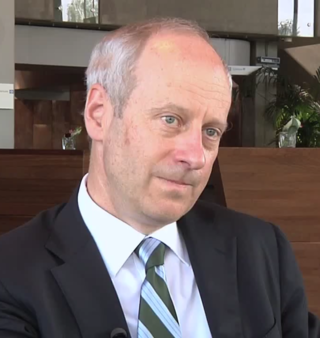
Michael Joseph Sandel is an American political philosopher and the Anne T. and Robert M. Bass Professor of Government Theory at Harvard Law School, where his course Justice was the university's first course to be made freely available online and on television. It has been viewed by tens of millions of people around the world, including in China, where Sandel was named the 2011's "most influential foreign figure of the year". He is also known for his critique of John Rawls' A Theory of Justice in his first book, Liberalism and the Limits of Justice (1982). He was elected a Fellow of the American Academy of Arts and Sciences in 2002.

Paulo Reglus Neves Freire was a Brazilian educator and philosopher who was a leading advocate of critical pedagogy. His influential work Pedagogy of the Oppressed is generally considered one of the foundational texts of the critical pedagogy movement, and was the third most cited book in the social sciences as of 2016 according to Google Scholar.
Critical pedagogy is a philosophy of education and social movement that developed and applied concepts from critical theory and related traditions to the field of education and the study of culture.
Henry Armand Giroux is an American-Canadian scholar and cultural critic. One of the founding theorists of critical pedagogy in the United States, he is best known for his pioneering work in public pedagogy, cultural studies, youth studies, higher education, media studies, and critical theory. In 2002 Routledge named Giroux as one of the top fifty educational thinkers of the modern period.
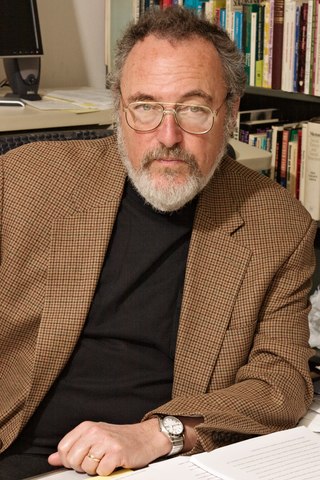
Michael W. Apple is an educational theorist specialized on education and power, cultural politics, curriculum theory and research, critical teaching, and the development of democratic schools.

Peter McLaren is a Canadian scholar who serves as a Distinguished Professor in Critical Studies at Attallah College of Educational Studies, Chapman University, where he is Co-Director of the Paulo Freire Democratic Project and International Ambassador for Global Ethics and Social Justice. He is also Emeritus Professor of Urban Education, University of California, Los Angeles, and Emeritus Professor of Educational Leadership, Miami University of Ohio. He is also the Honorary Director of the Center for Critical Studies in Education at Northeast Normal University, Changchun, China. According to Stanford University's database, McLaren belongs to the top 2% of the world’s most influential scientists.
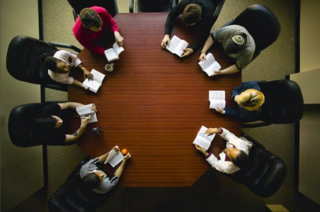
Democratic education is a type of formal education that is organized democratically, so that students can manage their own learning and participate in the governance of their school. Democratic education is often specifically emancipatory, with the students' voices being equal to the teacher's.

Pedagogy of the Oppressed is a book by Brazilian educator Paulo Freire, written in Portuguese between 1967–68, but published first in Spanish in 1968. An English translation was published in 1970, with the Portuguese original being published in 1972 in Portugal, and then again in Brazil in 1974. The book is considered one of the foundational texts of critical pedagogy, and proposes a pedagogy with a new relationship between teacher, student, and society.
Radical democracy is a type of democracy that advocates the radical extension of equality and liberty. Radical democracy is concerned with a radical extension of equality and freedom, following the idea that democracy is an unfinished, inclusive, continuous and reflexive process.
The ecopedagogy movement is an outgrowth of the theory and practice of critical pedagogy, a body of educational praxis influenced by the philosopher and educator Paulo Freire. Ecopedagogy's mission is to develop a robust appreciation for the collective potentials of humanity and to foster social justice throughout the world. It does so as part of a future-oriented, ecological and political vision that radically opposes the globalization of ideologies such as neoliberalism and imperialism, while also attempting to foment forms of critical ecoliteracy. Recently, there have been attempts to integrate critical eco-pedagogy, as defined by Greg Misiaszek with Modern Stoic philosophy to create Stoic eco-pedagogy.

Herbert Gintis was an American economist, behavioral scientist, and educator known for his theoretical contributions to sociobiology, especially altruism, cooperation, epistemic game theory, gene-culture coevolution, efficiency wages, strong reciprocity, and human capital theory. Throughout his career, he worked extensively with economist Samuel Bowles. Their landmark book, Schooling in Capitalist America, had multiple editions in five languages since it was first published in 1976. Their book, A Cooperative Species: Human Reciprocity and its Evolution was published by Princeton University Press in 2011.
The Rouge Forum is an organization of educational activists, which focuses on issues of equality, democracy, and social justice.
Carlos Alberto Torres Novoa is a distinguished professor.
Feminist pedagogy is a pedagogical framework grounded in feminist theory. It embraces a set of epistemological theories, teaching strategies, approaches to content, classroom practices, and teacher-student relationships. Feminist pedagogy, along with other kinds of progressive and critical pedagogy, considers knowledge to be socially constructed.

Critical Pedagogy Primer is a book by Joe L. Kincheloe published by Peter Lang. Like other "primers" published by Peter Lang, it is an introductory text on the topic of critical pedagogy aimed at a wider audience with its use of more accessible language. The book has wide margins suitable for reader annotations, and many terms and their definitions are included in these margins for accessibility.

Learning to Labour: How Working Class Kids Get Working Class Jobs is a 1977 book on education, written by British social scientist and cultural theorist Paul Willis. A Columbia University Press edition, titled the "Morningside Edition," was published in the United States shortly after its reception.

